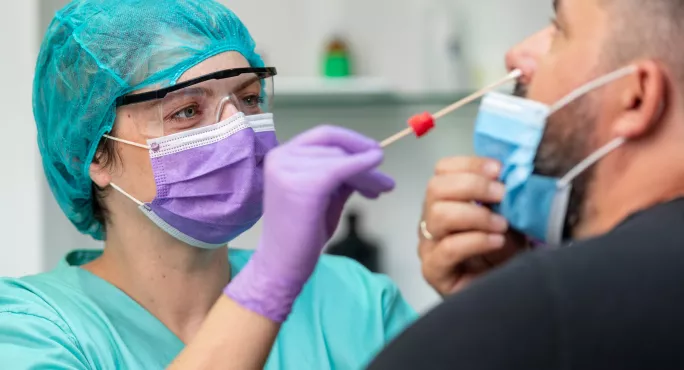Colleges in some parts of London, Essex and Kent will be part of the government’s rollout of mass testing in these areas, it has been confirmed.
Yesterday, health secretary Matt Hancock said he was particularly concerned about the number of coronavirus cases in London, Kent and Essex. “Looking into the detail, the testing results and survey show us that by far the fastest rise is among secondary school-age children, 11- to 18-years-old, while the rate among adults in London is broadly flat,” he said.
“But we know from experience that a sharp rise in cases in younger people can lead to a rise among more vulnerable age groups later.
Coronavirus: ‘We’re proud to be playing a part in the vaccine rollout’
Background: North West hit three times harder by Covid absences
Christmas contact tracing: Rules for FE providers
“We need to do everything we can to stop the spread among school-age children in London right now - we must not wait until the review, which will take place on 16 December. We need to take targeted action immediately.”
Coronavirus: Colleges part of targeted mass testing
Today, the Department of Health and Social Care confirmed that colleges in the targeted areas would also benefit. It said that from today, all staff, students and their families in certain schools and colleges will be urged to get tested. Schools and colleges would be provided with information on how to get involved, and parents or carers will be able to apply for tests using the online testing portal.
The London boroughs receiving additional Covid testing are: Barking and Dagenham, Hackney and the City, Havering, Newham, Redbridge, Tower Hamlets and Waltham Forest.
The Essex boroughs included are: Southend, Basildon, Canvey Island, Harlow, Brentwood and Harlow.
In Kent, an additional two mobile testing units will be deployed on Saturday, with a further 10 MTUs arriving later in the weekend.
Mr Hancock said: “We want to keep schools and colleges open, because it is right both for education and public health, but in the face of rapidly rising cases, we must act to target rising rates in secondary school pupils. From our successes in Liverpool and Leicester, we know that surge testing is safe, and helps us quickly assess where the virus is spreading most and take action to stop it in its tracks.
“I urge every student, parent and teacher in these areas to step forward for testing - irrespective of whether they have symptoms. While Covid-19 may be lower risk to children and young people, it still poses a significant risk to their families and communities. By taking these vital steps, we can get on top of cases and help bring transmission of this virus under control now.”
Education secretary Gavin Williamson said: “This additional testing capacity underlines this government’s commitment to ensuring that education is a national priority, because that is in the best interests of students’ progress, development and wellbeing. I would encourage everyone eligible to access the testing and I’d like to thank staff for continuing to ensure that schools and colleges have protective measures in place to reduce the risk of transmission.”




